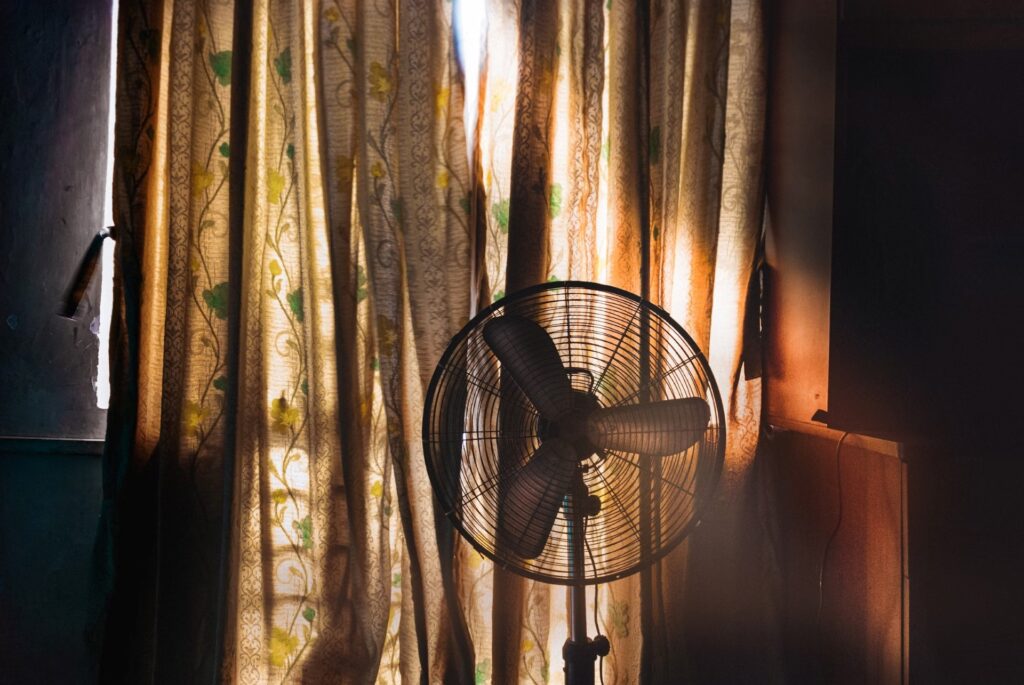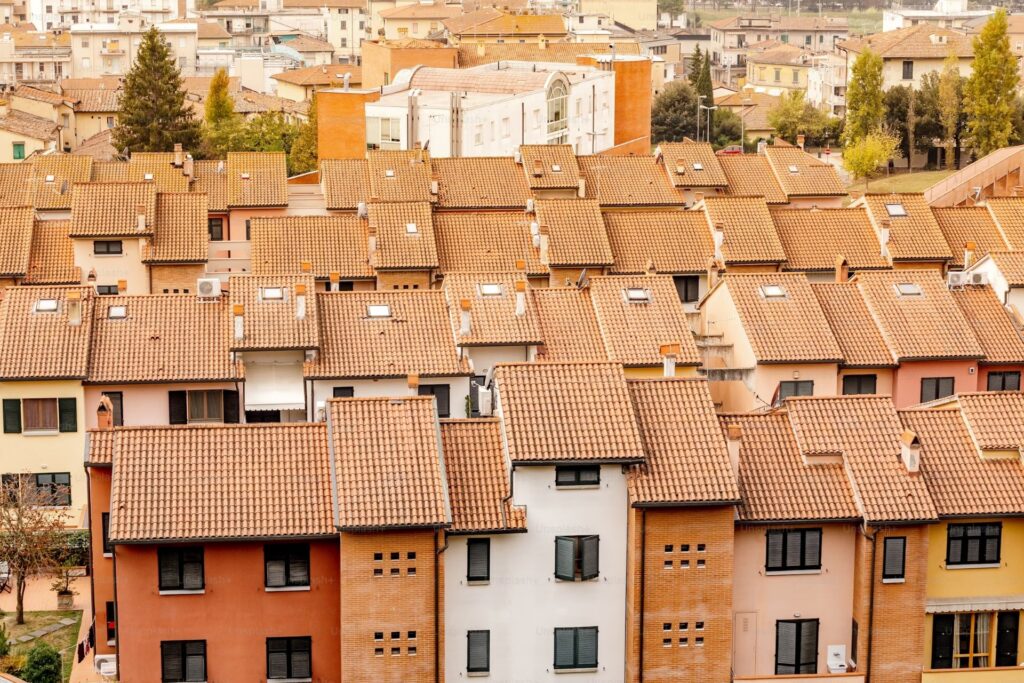Alleviating Year-Round Energy Poverty Needs to Be a Top Priority
The next European Commission must provide a healthy and comfortable living environment across Europe.
One of the main priorities for the next European Commission must be to provide a healthy and comfortable living environment across Europe. Achieving this will require a holistic approach that goes far beyond solely tackling the housing crisis, but also addresses Europe’s rising energy poverty levels and the looming climate crisis.
Back in July, in her address to the European Parliament, President of the EU Commission Ursula von der Leyen underlined her commitment to addressing Europe’s widespread housing crisis. She remarked on how house prices and rent continue to soar, and how many people struggle to find affordable homes. In the same speech, von der Leyen also referred to high energy bills driving people into energy poverty, but in the context of Europe’s energy crisis. What is missing in her speech is the major link between energy poverty, rising rent costs and a lack of decent, affordable and energy efficient homes for all.
When households become overburdened with their housing costs and energy bills, it becomes more difficult for people to afford the means to adequately heat or cool their homes, leading to serious health risks for millions of energy poor Europeans. Addressing rising energy poverty levels needs to be made a priority for the next EU Commission, and doing so will require a holistic approach. It must ensure that the EU just doesn’t build more and more buildings to cope with the housing crisis, but that renovation and repurposing is an integral part of the process.

Why energy poverty needs to be a top priority
When we typically think of energy poverty, we think of winter. Eurostat figures from 2022 show that over 41 million people in the EU (9.3 % of the population) were unable to keep their home adequately warm in 2022, an increase from the previous year. In fact, it was estimated that up to 68,000 Europeans may have died as a result of high energy prices that winter.
As stark as this figure is, it only tells one side of the story. What is often overlooked is energy poverty in the summertime. Extreme temperatures brought on by a worsening climate crisis are forcing more people to stay indoors in order to survive the summer months. Eurostat data reveals that 19% of the total population of the European Union is unable to keep their home comfortably cool in summer, over double the number of people affected by energy poverty in the wintertime.
Eurostat data reveals that 19% of the total population of the European Union is unable to keep their home comfortably cool in summer
Overheating within homes is a serious health risk for around 85 million people across the EU. According to the World Health Organization, heat stress is the leading cause of weather-related deaths and can exacerbate underlying mental and physical illnesses. The European Environment Agency estimates that of the 85,000 to 145,000 fatalities caused by extreme weather events in Europe, heatwaves accounted for over 85% of those fatalities.
Unfortunately, this trend is set to get worse. Europe is the fastest warming continent, and it is predicted that the number of Europeans exposed to extreme heat will increase from 10 million to 100 million by 2100. As it stands, most European homes and cities are ill-prepared for these rapidly growing climate risks.
Adapting housing demand to the new reality
A large number of buildings in Europe were not built to withstand extreme temperatures, nor were they built to be energy efficient, including the use of energy efficient appliances. In the EU, 85% of buildings were built before 2000 and amongst those, 75% have a poor energy performance. As a result, around 40% of energy consumed in the EU is used in buildings, with heating (space and water) and cooling making up around 80% of the energy used. Buildings being the single largest energy consumer in Europe has a major knock-on effect for both people and the planet.

The climate impact of our buildings also needs to be a major consideration. Buildings are a major contributor to greenhouse gas emissions, accounting for 36% of EU’s total GHG emissions. Again, this is mostly due to large energy requirements of buildings which mostly rely on fossil fuels for their energy consumption. This of course further exacerbates the climate crisis, which leads to more extreme temperatures that heavily impact those living in energy poverty. Utilizing smart design and incorporating energy-efficient features can help minimize energy use while achieving sustainability goals cost effectively.
Poorly insulated homes and outdated heating and cooling systems put a significant financial burden on households as energy prices are at an all-time high. Add on rising rent prices brought on by a housing shortage, along with a cost-of-living crisis, and an increasing number of households are pushed into energy poverty. It is estimated that around one out of ten EU citizens living in a city are considered ‘overburdened’ by housing costs, spending over 40% of disposable income on their mortgage and rent as well as electricity bills and other housing costs. Essentially, it is becoming more unaffordable for households to heat or cool their homes.
A large number of buildings in Europe were not built to withstand extreme temperatures, nor were they built to be energy efficient.
Identifying the link between each of these issues when it comes to housing is crucial. Policy makers and governments need to recognize how a shortage of affordable, decent and appropriately renovated housing is having a major economic, social, environmental and health impact on Europe’s population.
Raising awareness on this energy costs and affordable housing problem
Initiatives such as Build Better Lives campaign, which brings together over 90 NGOs from social justice, housing, climate and youth backgrounds, aim to raise awareness around the need for a holistic approach; addressing both Europe’s housing crisis and rising energy poverty levels. Increasing the housing supply can lower rental costs, but if done in a siloed manner, it can fail to protect vulnerable households from falling into energy poverty. On the flipside, lifting millions of people out of energy poverty will require an increased supply for affordable, decent housing along with renovating the ‘leakiest’ homes.
A project on holistic renovation that focuses on existing buildings in Europe is the RE-SKIN project, which aims to create a multifunctional retrofit system that will improve the lives of vulnerable people, including unemployed individuals living in public housing in France. Each demo case building will have improved resilience against climate change and energy reduction will reach up to 90%. One of the innovations applied is the integration of bio-based insulation materials, which will enable tenants to stay indoors throughout the renovation works, as the insulation layers and other components will be added externally on the facade and roof of these buildings. Thus, upgrading buildings will be more accessible, without forcing tenants to temporarily find another home.
Delivering affordable, decent and energy efficient housing
Decades of inaction when it comes to the housing and building sectors have led Europe here. Year-round energy poverty, both in the winter and summer, is becoming a new reality for more cities and households. Millions of people can’t afford another decade of inaction. Urban development plays a crucial role in defining affordable housing and addressing the complexities of the housing crisis.
A major boost in the supply of accessible, affordable and decent housing would mark significant progress towards the provision of a healthy and comfortable living environment across Europe, while addressing the current and older building stock.
There is already a revised EU Building framework, the Energy Performance of Buildings Directive (EPBD) which was adopted into law back in April this year and requires Member States to renovate a certain percentage of their building stock. While it was a step in the right direction, it falls too short in what is needed to turn back the trend on rising energy poverty levels and have a significant impact on mitigating the climate crisis. A new “Holistic Deep Renovation Wave Strategy” that strengthens the implementation of the EPBD is needed to further explore the nexus between buildings’ renovations, affordability of housing, circularity of materials and sufficiency.
To effectively address the EU’s housing crisis, the EU Commission should develop and deliver an EU Action Plan that provides affordable, fully renovated housing that is heated and cooled through sustainable, renewable technologies should be a main priority for the new Commission. This includes old, vacant buildings that are being repurposed for housing and renovated to a high energy performing standard. There should also be efforts made to encourage rental agencies and landlords to provide affordable, quality, energy efficient housing for renters, helping to ensure that as rent prices go down, so do energy prices for tenants. Not only will these measures help tackle a housing crisis, but also the worsening energy poverty, cost of living and climate crises.
Interested in reading similar articles? Check our main page for more energy related topics.
